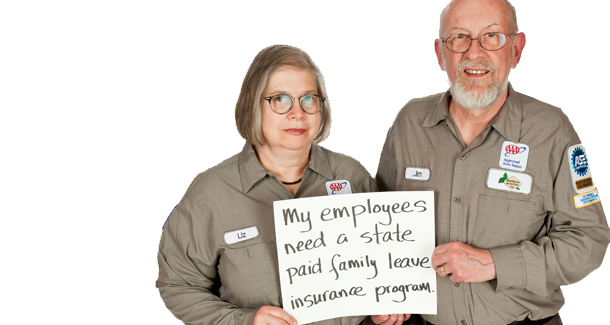The Center for American Progress (CAP) released a new report (April 12, 2012) documenting the need for a national paid family and medical leave program. The report, “The Effects of Paid Family and Medical Leave on Employment Stability and Economic Security,” explains how — “though it may seem counterintuitive — providing paid family and medical leave when people cannot work due to caregiving responsibilities actually helps keep people employed. In the short term it keeps people away from work, but in the long term it reduces the number of people who have to quit their jobs when they need time off to care for a seriously ill family member or when they have a new child. Paid medical leave serves this same purpose for workers who have short-term but serious illnesses that prevent them from working.”
In this report, CAP proposes a solution to this problem: Social Security Cares, a new program they developed that would provide up to 12 weeks of paid leave to qualifying workers (run through the existing Social Security system) after the following life events:
- The birth of a newborn, or the arrival of a newly adopted or fostered child.
- The serious illness of a spouse, domestic partner, parent, or child.
- The worker’s own serious illness that limits their ability to work.
The proposal is quite a bit like the existing federal Family and Medical Leave Act (FMLA) passed in 1993, except leave would be paid and all workers would be covered (currently almost 1/2 of workers in the U.S. aren’t covered by FMLA; the Oregon Family Leave Act covers more workers by lowering the employer size to which it applies).
Truth is, without access to reasonable family and medical leave policies, workers are forced to choose between their jobs and their families or their health (because at some point or other, all workers have caregiving responsibilities). This issue is especially salient in these tough economic times. Once a worker has to quit in order to provide care or recover from an illness, their chances of finding work in this economy are quite low.



